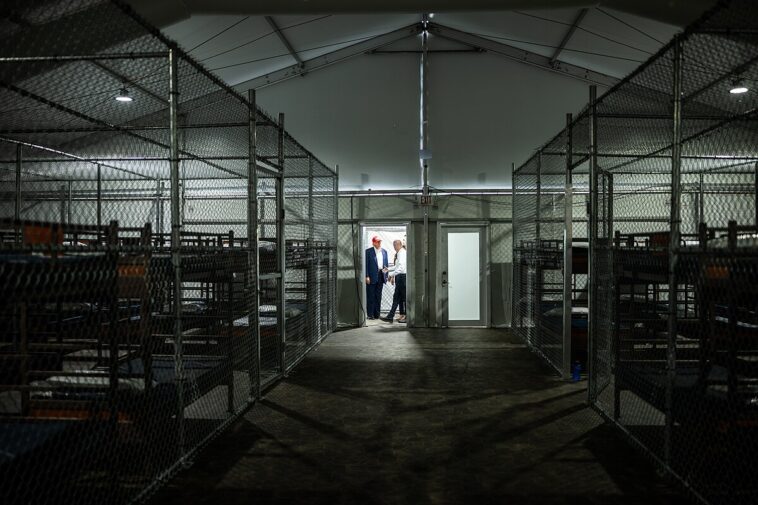A growing chorus of health specialists, immigrant advocates, and relatives of inmates are raising unsettling allegations about serious health risks at a state-run immigration internment camp based in the Everglades. Critics argue that those inside the camp are not just enduring confinement, but hazardous and prohibited circumstances that pose significant health threats.
According to one spokesperson, the camp isn’t just a site for detention, it’s become a disastrous public health experiment, converting living individuals into unknowing test subjects. The detainees are consistently subjected to exposure from rampant viruses, untreated sewage, and humanitarian abuses. Such issues, they argue, are a reflection of government-endorsed harshness that can’t continue.
A notable press meeting pointed out deeper concerns specifically about the Everglades detention site, colloquially termed as ‘Alligator Alcatraz’. ‘The existence of this camp is an affront to our community’, voiced a representative from a well-known, statewide immigrant defense organization.
They further pointed out the dire conditions within the camp, highlighting squalid sanitary facilities, harsh high temperatures endured by the detainees, and a critical lack of necessary amenities. Referring to such poor treatment standards for humans as un-American, they gave voice to the broader sentiment that the current circumstances are intolerable.
One health official echoed this sentiment, warning, ‘We are witnessing a public health catastrophe playing out right where we live.’ Their stern warning pointed towards an untenable situation escalating locally with potentially broader human impact.
At this public meeting, a detainee’s wife, tearfully shared her husband’s ordeal in the camp. ‘This isn’t a place for people, it’s a kennel,’ she lamented. ‘Even a dog doesn’t deserve to be kept here.’ This emotional plea exposed the stark human realities of the situation.
One alarming report cited a study estimating that the surrounding environment of the camp is home to over 7 billion mosquitoes. These insects not just represent an immense nuisance, but some might also potentially carry harmful viruses like the Everglades virus, West Nile, Zika, and dengue.
The health risks have already manifested in some cases. Unspecified ailments, possibly linked to the conditions inside the camp, have resulted in the hospitalization of a reported six detainees. The circumstances surrounding these hospitalizations, however, remain shrouded in mystery.
These advocates are not simply raising concerns, they are demanding action. Calls for the immediate shut-down of the camp, urgent health screenings, and care for everyone currently and recently incarcerated there. Other demands include continuous medical check-ups for people working on site, and guaranteeing complete legal access for all detainees.
Originally, the center was erected in haste as a solution to accommodate an influx of suspected undocumented immigrants. However, the speedy deployment of the executive order facilitating this process has led to accusations of overreached authority and the neglect of essential legal protections.
Lawsuits have been launched by environmental bodies, contending that key federal and local regulations were disregarded during the camp’s construction. Their argument centers around the belief that the camp exemplifies an infringement of these laws and also illustrates a neglect for sound environmental stewardship.
An additional legal action focuses on the barriers to legal access for detainees. It challenges the current arrangement that severely hampers the ability of detainees and their legal advisors to present necessary documents to challenge their confinement through the immigration court.
Another legal challenge is spearheaded by lawmakers, accusing the administration of overstepping its jurisdiction by denying legislative surveillance of the contentious camp. The outcry comes in response to lawmakers being denied permission to inspect the center, an action that they argue is not compliant with Florida law.
The lawmakers assert that the limitations imposed on their oversight were illegal, contradicting Florida regulations that allow representatives to visit all state correctional institutions. Judicial action seems inevitable and is likely to clarify the oversight obligations in this complex and disturbing situation.
On a broader scale, these issues signal the pressing need for a more humanitarian approach to immigration control. A conversation revolving around respect for human rights needs urgently to be woven into policy dialogues, transcending narrow partisan positions.
Overall, the events unfolding in the Everglades detention camp highlight an alarming situation. There is an urgent need for immediate intervention and rectification of these grim conditions. For those confined within the camp, the change can’t come soon enough.

